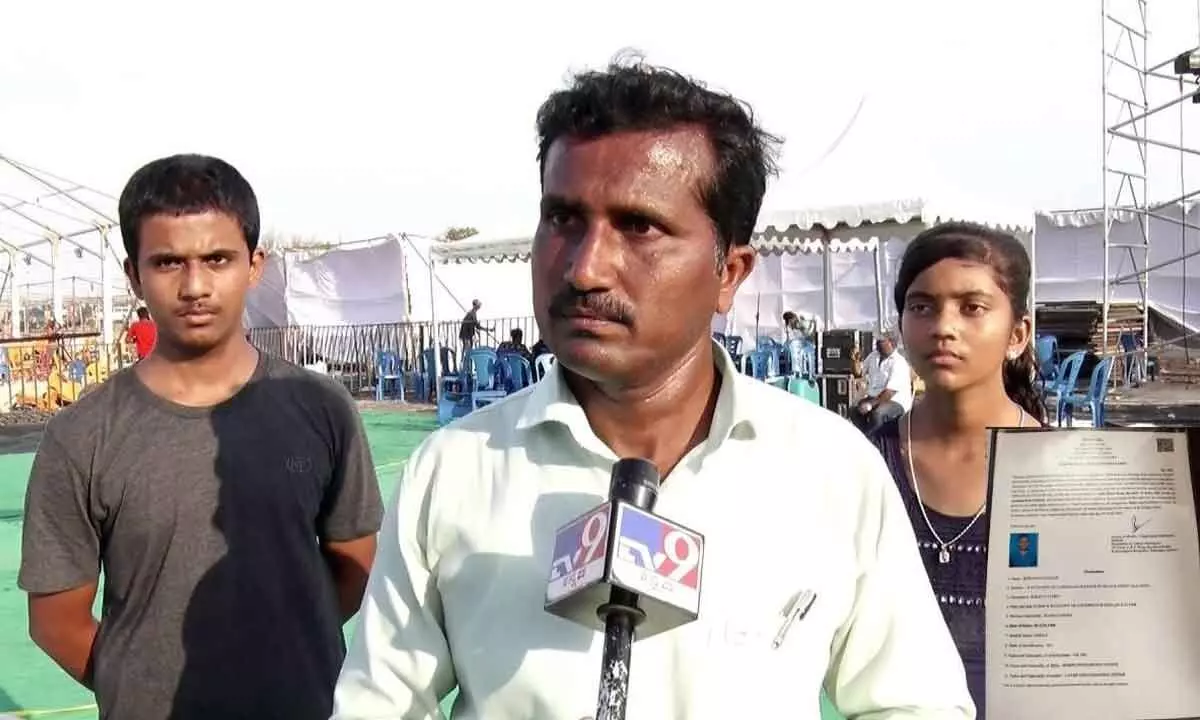Five Bangladeshi refugees granted Indian citizenship under CAA

In a significant development, five Bangladeshi refugees residing in RH camp in Sindanur taluk have been granted Indian citizenship under the Citizenship Amendment Act (CAA).
Raichur: In a significant development, five Bangladeshi refugees residing in RH camp in Sindanur taluk have been granted Indian citizenship under the Citizenship Amendment Act (CAA). This marks the first instance in Karnataka where citizenship has been granted under the Act. While other states have previously granted citizenship under the CAA, this is a first for Karnataka. The recipients of citizenship include Ramakrishnan Abhikari, Advita, Sukumar, Bipradas Golder, and Jayantha Mandal, all of whom have been living in the camps.
The process began last year when Prime Minister Narendra Modi visited Sindanur. During his visit, migrants submitted a petition for citizenship through former BJP MP Veerupakshappa. Following this, the Prime Minister discussed various issues with them. Subsequently, a district-level review committee, comprising officials from the post office, railway, and intelligence departments, conducted a thorough review of the applicants’ residences and documents.
Based on their findings, the committee recommended citizenship, which was then granted by the Directorate of Civil Registration and Census Operations of the State Home Ministry.
The RH camp in Sindanur Taluk were originally established in 1971 during the partition of Bangladesh and Burma (now Myanmar), to provide shelter for families who fled to India during that tumultuous period. A total of five resettlement centers were set up, accommodating 932 families.
Among them, 727 families who migrated from Bangladesh were housed in Camps 1 to 4, while 205 families from Burma were accommodated in Camp 5.Over the past four decades, the population in the RH camps has grown to over 25,000, with around 20,000 being Bangladeshi refugees and 5,000 Burmese refugees.








